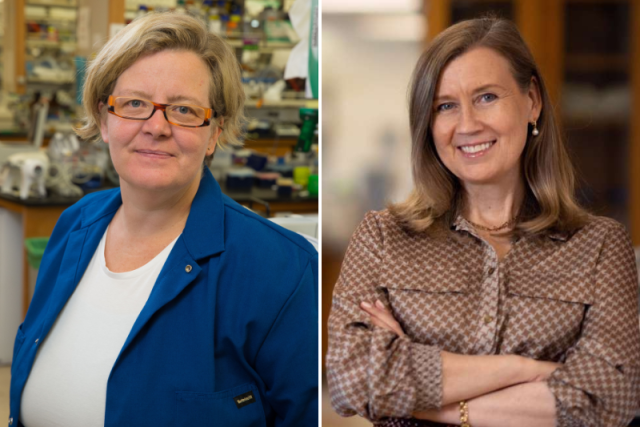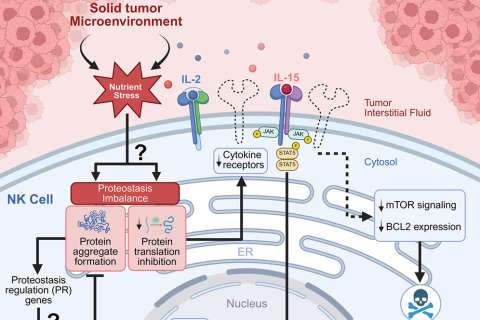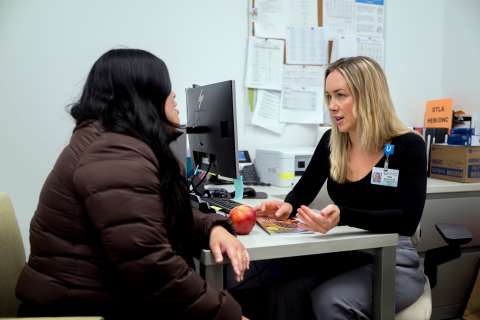Researchers at the Eli and Edythe Broad Center of Regenerative Medicine and Stem Cell Research at UCLA have received $4.7 million in grants from the California Institute for Regenerative Medicine, the state’s stem cell agency, to advance stem cell-based treatments for female-specific diseases and childhood leukemia in Down syndrome.
Overcoming barriers in stem cell-based therapies for women’s health
Dr. Kathrin Plath, professor of biological chemistry
Plath’s $2.4 million award will fund her work to investigate why X-chromosome inactivation erosion, or XCI erosion — the spontaneous reactivation of genes on the inactive X chromosome in female human pluripotent stem cells — occurs during cell culture. Men and women experience diseases and respond to treatments in distinct ways, in part due to differences in their sex chromosomes: XX in females and XY in males. Females undergo a process called X-chromosome inactivation during early development in which one X chromosome is randomly silenced to balance gene expression with males who only have one X chromosome, allowing for normal development.
However, when scientists create female human pluripotent stem cells in a dish — important tools widely used in biomedical research and regenerative medicine — XCI erosion inevitably occurs. This undermines the accuracy of these models and limits their usefulness for clinical translation. By developing methods to maintain proper X-chromosome inactivation in these stem cell models, the research team will enable more accurate disease modeling, making stem cell therapies for female patients safer and more effective.
Uncovering how changes in blood stem cell development lead to leukemia in children with Down syndrome
Dr. Hanna Mikkola, professor of molecular, cell and developmental biology
Children with Down syndrome face a significantly higher risk of developing leukemia, but scientists don’t understand how this blood cancer begins during pregnancy or how to identify pregnancies that are at risk. Mikkola’s $2.3 million award will support her work to trace how blood stem cell development goes awry, leading to a pre-leukemic condition that either resolves naturally after birth or progresses to leukemia.
Using patient samples and pluripotent stem cell models, the research team will map the disease’s evolution at the single-cell level to uncover the mechanisms driving this leukemia. The resulting tools will provide crucial insights into the root causes of leukemia in children with Down syndrome, potentially leading to new methods for preventing the cancer before it starts. This research could also advance our understanding of other blood diseases that originate before birth and provide a blueprint for scientists to create specific blood cell types for more accurate disease modeling and more effective cell therapies.





